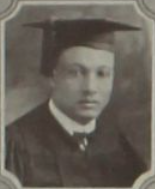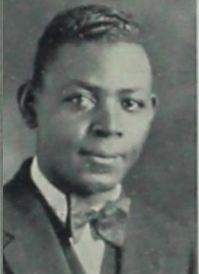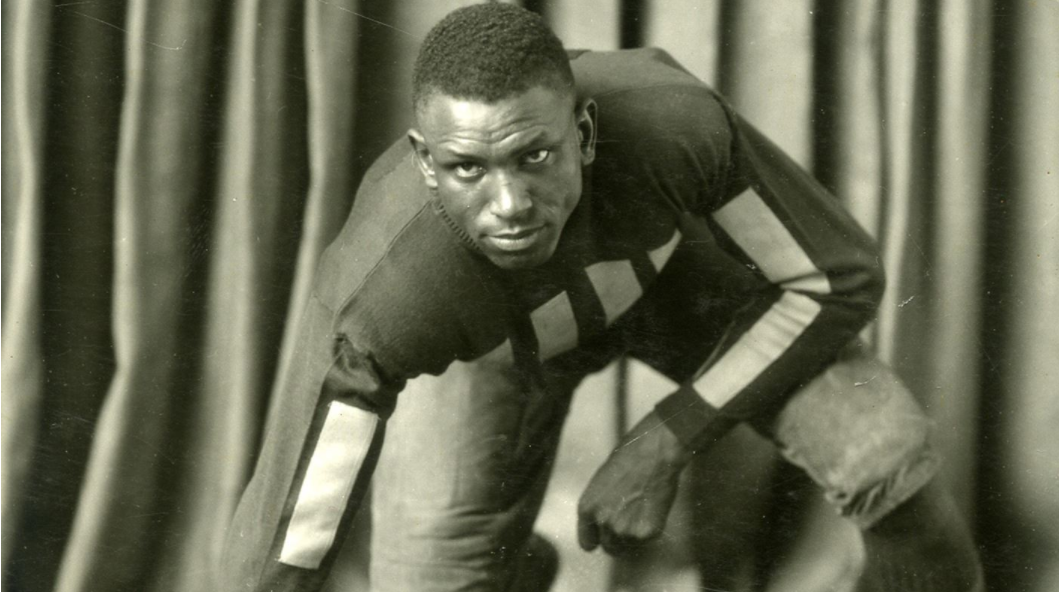William Tecumseh “Billie” Wells was born 9 September 1891 in Solgohachia, Arkansas, to Isaac Lee Wells and Jane Gorman Wells. After graduating from Solgohachia High School, William became a self-employed farmer, according to this World War I Draft Registration Card. Enlistment in the Army for service in World War I on 27 October 1917 meant two more years away from post-secondary education. Wells was discharged on 2 May 1919. Later that year, on 24 December, he married Aubra McKindra and returned to the farm.
Wells attended Prairie View Normal & Industrial College (now Prairie View A & M University) in 1921-22, where he was in the junior Division of Vocational Agriculture. Following that, from 1923 to 1925, he attended Iowa State College, where he was a member of the Agriculture Club (Iowa State University, 1925) as well as the Alpha-Nu Chapter of Alph Phi Alpha by 1924 (Tutt, 1924). During his time in Ames, Wells lived at 200½ Main Street. He earned a Bachelor’s of Science degree in Agricultural Education from Iowa State College in 1925. At the end of January that year, Wells filed for divorce from his first wife on the grounds of desertion during his time at ISC, an undoubtedly difficult situation for him as he completed his studies. When the divorce was granted, Wells married Doris Aline Hutchison on 23 March 1925.
By the 1930 census, William and Doris had moved to Taft, Oklahoma, where he took a job as a teacher and Superintendent for the Farms of the State Hospital, Deaf, Blind, Orphans, and Girls Reformatory. Known as the DB&O, the orphanage housed more than 300 African American children in the mid-1930s (“Preserving a Bit of Oklahoma’s History,” 2007). In 1935, Wells attended the banquet held for Iowa State Alumni at the inauguration of Frederick D. Patterson as President of Tuskegee. By 1946, Wells is listed in the Muskogee, Oklahoma, City Directory as a “rehabilitation officer,” and by 1957, he was a teacher at the Manual [High] School in Muskogee, where he taught until at least 1959.
William T. Wells died on 6 January 1977 in Sterling Heights, Michigan, and was buried in Booker T. Washington Cemetery, Muskogee, Oklahoma.
Sources
Photo credit: Iowa State University. (1925). 1925 Bomb, v. 32 Special Edition, p. 85. Retrieved from https://digitalcollections.lib.iastate.edu/islandora/object/isu%3ATheBomb_41631#page/100/mode/2up
“Preserving a bit of Oklahoma’s history.” (2007, Feb. 20). News on 6. retrieved from https://www.newson6.com/story/5e36891a2f69d76f6209f7b5/preserving-a-bit-of-oklahomas-history
Tutt, Harold L. (1924, June). Alpha-Nu chapter, Des Moines, Iowa. The Sphinx, 10(3), p. 17. ISSUU. Retrieved from https://issuu.com/apa1906network/docs/192401003




